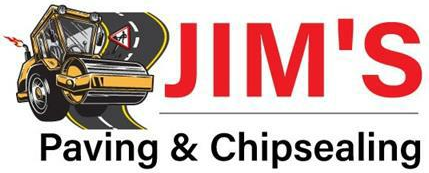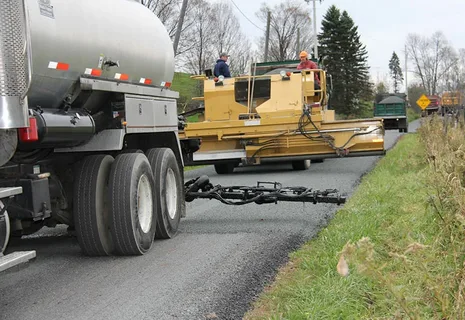Chip sealing is the cheapest and most efficient way of resurfacing an asphalt road for maintenance purposes or to improve driveways. The method applied involves the layering of a layer of hot liquid asphalt and afterward a layer of aggregate chips, which is compacted to form a hard smooth surface. Chip sealings can be applied to most surfaces such as chip-seal driveways, driveways chip seal, and chip-seal roads. However, the material you decide to use for your chip seal pavement plays a significant role in making it last for a long time.
What is Chip Sealing?
Chip sealing is discussed before material selection. Chip sealing, also known as surface treatment or tar-and-chip paving, is a cheap and efficient way of sealing and resurfacing roads, driveways, and parking lots. The process includes applying a layer of asphalt emulsion or hot tar to an existing surface. On the liquid asphalt, a crushed stone or an aggregate spread and further compacted in its pieces within emulsions to strongly bind upon rollers.
This type of treatment is excellent for chip-sealed roads or chip-sealed driveways that are showing signs of wear and tear. It increases the durability of the surface, protects it from weather elements, and improves skid resistance.
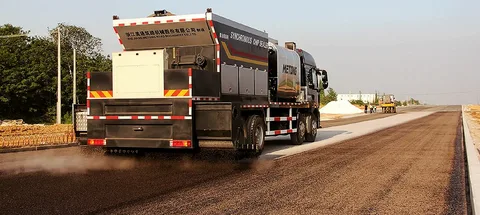
Why Choose Chip Sealing?
Chip sealing is relatively much cheaper than asphalt paving. It requires less material and fewer man-hours. It’s the most cost-effective method for resurfacing roads and driveways.
Durability
Chip sealing can extend the life of a pavement surface significantly, protecting it from water damage, cracks, and oxidation. Chip seal roads are very commonly applied because chip seals are highly resistant to constant traffic wear and tear.
Quick Installation
Chip sealing has the benefit of having an application process that is faster than the conventional paving methods. It is ideal for projects that require a tight deadline or a quick road repair.
Flexibility
Chip sealing may be used in many types of surfaces, ranging from chip seal driveway applications to residential roads and even those rural roads that are not important or worthy enough for expensive, complete asphalt paving.
Main Materials in Chip Sealing Operations
The selection of proper materials is a necessity to ensure that chip sealing is done to its highest standard. Each constituent plays an important role in the overall quality and durability of the finished surface. The key materials used in chip sealing are these:
1. Liquid Asphalt or Asphalt Emulsion
The asphalt emulsion is the binder that holds the chips in place. The asphalt emulsion acts as a mix of asphalt with water and also emulsifying agents. Applied to existing surfaces, emulsion creates bonding between the aggregate or chips and pavement.
Types of Asphalt Emulsions:
Anionic Emulsion: Suitable for chip seal roads where soil has a higher acidity level. It prefers limestone aggregate.
- Cationic Emulsion: Suitable for areas with more alkaline soils, as it binds well with silica aggregates and offers stronger resistance to moisture.
- The most crucial factor in choosing the appropriate asphalt emulsion is the environmental conditions such as climate and soil composition in your area. In case you are undertaking a driveway chip seal project, you should consult a professional contractor so that he may determine what best fits your needs.
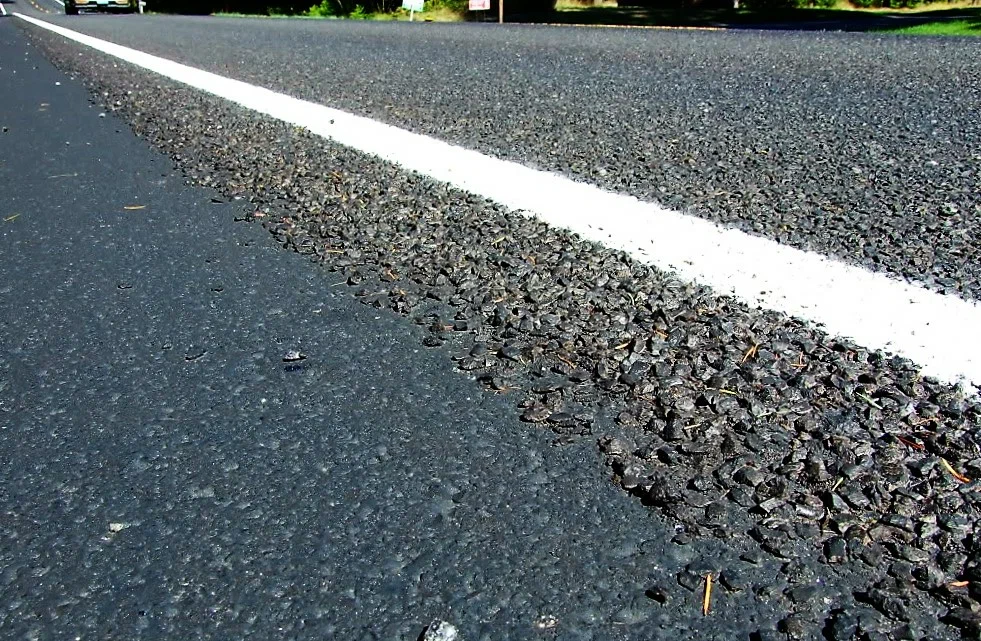
2. Aggregate Chips (Crushed Stone)
The aggregate chips are what give the chip sealing its texture and look. The size, type, and quality of the chips are also what determine the pavement’s longevity and performance.
Types of Aggregate Chips:
- Gravel: Crushed gravel is one of the most widely used aggregates for chip sealing. It is a cost-effective option with good strength. This aggregate is preferably used for rural chip seal road projects.
- Crushed Stone: This is more durable and harder than gravel. Crushed stone is the best option for areas that experience heavier traffic or harsher environmental conditions.
- Limestone: It is known for its toughness and has primarily been used in acid soils; it is also often applied for chip seal pavement purposes.
- Slate or Shale. Because it has an attractive appearance, has a smooth texture, slate and shale are often used on top-of-the-line chip sealings. It is often found on chip-sealed roads or decorative driveways.
The size of aggregate chips is also going to affect the texture and performance of pavement. This includes:
- Small Chips: Offer a smoother surface and are suitable for residential chip seal driveway projects.
- Big chips have more durability with improved skid resistance to allow a well laid out chip seal, good especially on higher trafficked roads.
3. Sand
Sometimes, a thin layer of sand was applied on top after the aggregate. Occasionally, a thin layer of sand would fill in gaps between chips on the surface, thus creating a smoother surface. It also aids in bonding chip layers with the asphalt emulsion.
4. Application Apparatus
The equipment used varies during chip sealing depending on the size of the project and materials. Usually, the following ones exist:
- Distributor trucks apply asphalt emulsion on the surface in a uniform manner through the use of the trucks.
- The chip spreaders distribute the aggregate chips uniformly when the emulsion has been put in place.
- Rollers: Rollers compact the chips into the asphalt emulsion so that chips are embedded deeply into the pavement.
The right equipment ensures that the application process is efficient, and there is no risk of imperfections or uneven surfaces.
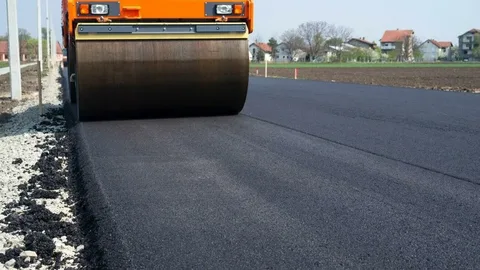
How to Select the Best Materials for Your Project
Proper materials to use on your chip sealing project play an important role in ensuring a desirable outcome. Here are some things to consider when selecting your materials:
1. Evaluate Traffic Volume and Load
The amount of traffic volume and load must be considered if you seal a driveway chip or seal chip-sealed road. More prominent traffic volumes require more resilient aggregate materials, such as crushed stone, while smaller areas of traffic can get along with gravel or smaller chips.
For chip seal roads with high traffic loads, larger aggregate chips and stronger asphalt emulsion should be used to ensure long-term durability.
2. Analyze Local Climate
The climate in your area will play a major role in the choice of materials. In extreme weather conditions such as freezing temperatures, it becomes necessary to use asphalt emulsion and aggregate chips that will not be affected by the change in temperature and moisture. For example, the asphalt emulsions for cold climates may perform better under extreme conditions.
3. Understand Soil Composition
Therefore, the nature of the soil determines which asphalt emulsion and aggregate chips can be the best for application. For instance, anionic emulsions are well-suited to acidic soils but the slightly alkaline environments prefer cationic emulsions.
4. Choose the Right Aggregate Size
The size of the aggregate chips also affects the aesthetic appeal as well as the functionality and performance of the surface, with smaller chips more optimal for smooth surfaces, whereas larger chips are optimal to be used in areas needing more durability and skid resistance, such as for roads.
5. Consider Longevity and Maintenance
Chip sealing should look good for many years to make. Selecting good quality emulsified asphalt and also abrasive aggregate chips helps prevent most damage to the element impact and wear and tear. Moreover, weigh well the long-term service that your project might need concerning how often the repairs could require touch-ups from this installation.

6. Aesthetics preferences
Depending on if you are working on a driveway chip seal project or otherwise, you may care about the appearance of the finished surface. Slate or shale, to name a couple of others, offer a more ornamental appearance than gravel, which can be rather more functionally aesthetic.
Conclusion
Chip sealing is an excellent resurfacing option for chip-seal roads, chip-seal driveways, and other paved surfaces. Choosing the right materials makes all the difference in producing a durable, cost-effective, and aesthetically pleasing result. Consider such factors as traffic volume, local climate, soil composition, aggregate size, and longevity when selecting materials for your chip sealing project. By carefully selecting the right asphalt emulsion, aggregate chips, and other materials, you can ensure that your chip seal pavement will stand the test of time and provide a smooth, durable surface for years to come.
